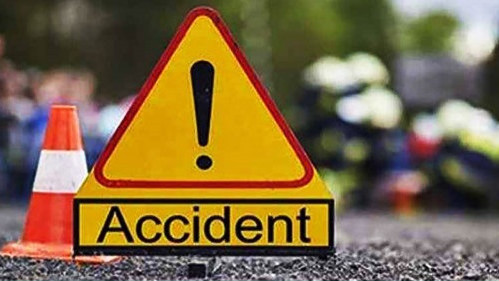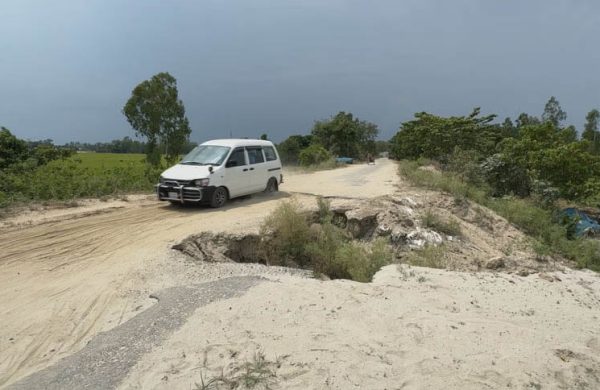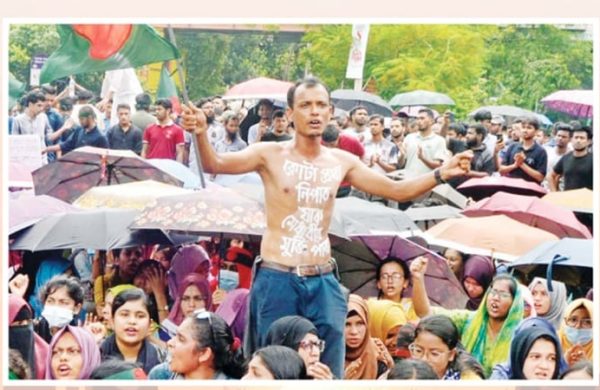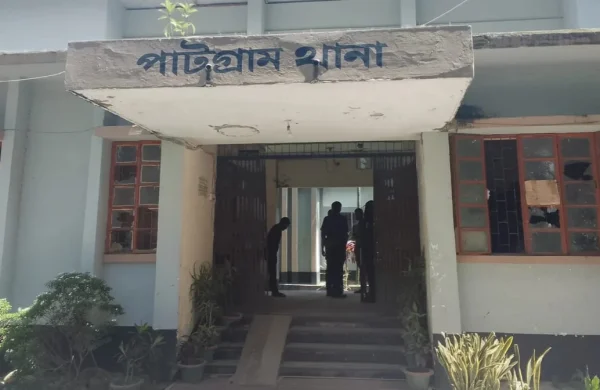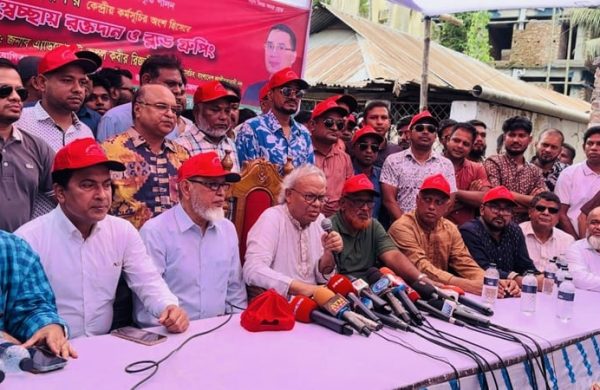Jamuna Bridge to bid farewell to rail tracks, welcome wider roads
- Update Time : Tuesday, January 7, 2025

TDS Desk:
The government has decided to remove the railway tracks from the Jamuna Multipurpose Bridge, a move aimed at improving road traffic flow and enhancing the bridge’s overall efficiency, as the construction of a dedicated railway bridge adjacent to the existing structure has recently been completed.
Constructed primarily for road transport, the bridge’s railway line, added in 1998 during the Awami League government’s tenure, has long been a source of operational limitations, said officials concerned, adding that the removal of the tracks, recommended by the Bridges Division, will allow for a slight widening of the existing lanes, addressing a longstanding concern for road users.
The Bangladesh Bridge Authority built the Jamuna Multipurpose Bridge while Bangladesh Railway has constructed the new Jamuna Rail Bridge – both connecting Sirajganj and Tangail districts.
M Fouzul Kabir Khan, adviser to the Ministry of Railways and the Ministry of Road Transport and Bridges, “The railway tracks on the Jamuna Bridge will be removed by the Bangladesh Railway authorities. The old tracks will be utilised elsewhere as needed. This will normalise and potentially widen the road lanes on the bridge. This is a decision we have reached.”
If the railway tracks remain on the Jamuna Bridge, regular train operations would be necessary; otherwise, the tracks could deteriorate, he added.
“Since a new railway bridge is being built, trains might not use the old bridge’s tracks. However, the old tracks could serve as a backup, though maintaining them could be expensive. Railway officials believe it is better to remove the tracks unless they are essential.”
When asked when the tracks will be removed, Bangladesh Railway Director General Md Afzal “The exact timeline for removal has not been finalised. However, we will remove our tracks from the bridge. The Bridges Division can then modify the bridge to widen the lanes if they choose. Keeping the old tracks might lead to theft, and we can use them where needed.”
Currently, the bridge’s two lanes are relatively narrow, causing traffic issues. If the railway tracks are removed, the lanes can be slightly widened. A feasibility study is necessary to assess the cost and the possibility of lane expansion.
Rashidul Hassan, executive director (routine charge) of the Bangladesh Bridge Authority, “After removing the railway tracks, we are considering a feasibility study to see if the lanes can be widened. This is still at a very preliminary stage. However, a policy decision has been made, and we are working on removing the railway tracks from the bridge.”
Officials said the railway line was forcibly added to the Jamuna Bridge, which was opened on 23 June 1998, during the Awami League government’s tenure, despite the bridge being primarily for road transport.
Trains move very slowly across the bridge due to its design. The bridge’s railway tracks are authorised to carry a maximum load of 43.70 kilo-newton/metre, with trains operating at a controlled speed of 20 km/h. As a result, it takes about 27-30 minutes for a train to cross the bridge.
Furthermore, broad-gauge container flat wagons, oversised consignments, and heavier freight trains cannot use the bridge, and only one locomotive is permitted at a time, limiting railway operations.
JAMUNA RAIL BRIDGE TO BE OPERATIONAL IN FEBRUARY
Meanwhile, the construction of the 4.80km Jamuna Rail Bridge is now complete, with new 30 km rail lines, including loop lines, installed at the Tangail and Sirajganj ends. Test runs have begun, with commercial train services expected soon.
“The construction of the Jamuna Rail Bridge is complete, and various trial phases are underway. After the trials, the Government Inspector of Bangladesh Railway (GIBR) will conduct an inspection, and commercial train operations will commence upon their approval.
“We expect commercial services to start by February. The new bridge will increase train capacity, allowing multiple trains to run simultaneously due to the double line.”
The rail bridge project, jointly financed by Bangladesh and Japan, costs Tk16,780 crore. The foundation stone was laid on 29 November 2020, following project approval in July 2016. The project’s Defect Liability Period will conclude in December 2025.


